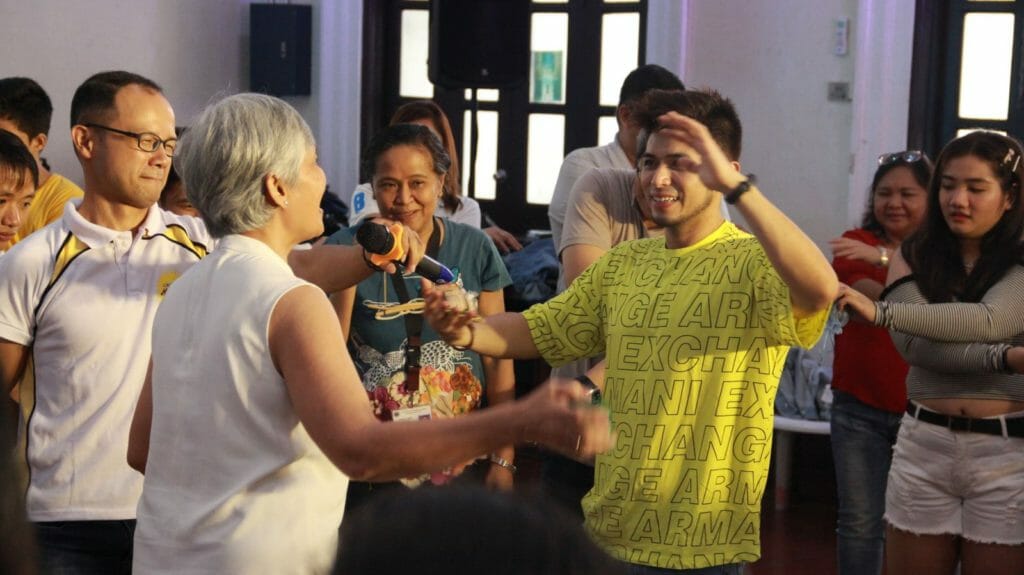We are here to awaken from our illusion of separateness.” – Thich Nhat Hanh, Zen Master & Peace Activist
As Circle of Hope re-launches into being a formal nonprofit organization, we look back with joy and gratitude on the first four years of birthing and growing our community at The Philippine General Hospital. In setting out to respond to the need for mental health support for adolescent cancer patients, we have learned tremendously as a community about the power of connection in holding and healing our suffering. Our teen and parent support groups have become an oasis of safety, openness, presence, compassion, and shared humanity. This journey has had its highs and lows. After all, facing the realities of cancer involves going through a very trying treatment process and accepting the element of uncertainty in what the outcomes might be. Most significant among our low moments were those of grieving the loss of several Teen Barkada members, some of whom founded the teen support group back when it started in August 2015. Yet, being more together than alone, moments of pain become touchpoints for compassion and tenderness. In our moments of shared grief, we experience deep love and hope. Loss transforms into awakening to the intangibly new but continuing presence of “lost” friends.
This power of collective spirit, or Diwa, is fed by our commitment and practice to honor each person’s true self and interiority– the sacredness and nobility of each person’s Loob. Taking time week after week to practice the discipline of awareness, of looking within, and cultivating self-compassion, we have grown in our inner harmony and in our ability to harmonize with others, our Kapwa. In this giving and taking, we learn to “go as a river”, through the peaks and valleys of our journey. Recalling what one of our teens’ has shared in a support group session, she expressed that while she would have never wished to deal with cancer, there is also a strong sense of gratitude that it has become a path for her to experience life and relationships with richer purpose and meaning. It’s a wonderful perspective of grace and hope, and how the mud of her suffering has blossomed into the lotus of life lived to its most essential core. As our parent support group members like to say, “buhay na siksik, liglig, umaapaw.” This, Circle of Hope, is there for each and everyone of us to awaken into and be part of. -Joanna “Jabby” Herrera
FEATURED MINDFULNESS PRACTICE
MINDFUL BREATHING
Breathing in, we give our attention to our breath. We feel the calmness for as along as we are breathing in. When breathing out, we smile in order to relax all the muscles of our face. Our nervous system relaxes when we smile. The smile is the result of feeling calm from our breathing in, and the smile is also a cause that helps us to become relaxed and feel the peace and joy that is increasing in us.
WHY THE EARLY YEARS MATTER BY ANGEL BELLE DY, MD
Early childhood is a critical phase in human development that begins even before birth. It involves the child’s body and brain developing and meeting developmental milestones for eventual success in school and later in life.
90 percent of a child’s brain develops in the first five years of life, and key to this development is the way that children are learning from their environment..
All children learn in the context of their relationships with caregivers and peers, and they develop critical thinking and other lifelong skills through their day-to-day experiences. Early childhood is the period where children experience rapid physical and psychological growth. They are learning to move, communicating with others,
interacting with the world, and developing a sense of individual identity.Therefore, the early years is an opportunity to support healthy brain growth.
COHCS’s Early Childhood Caravan will provide training on brain growth and development to mothers in low income communities. Neurobiologic research shows that children living in adverse circumstances can make the biggest gains in their cognitive, social, emotional and physical growth if they are provided high- quality experiences in their environment with people who care for them. This initiative aims to equip parents with knowledge and skills to give their children a head start to success.
